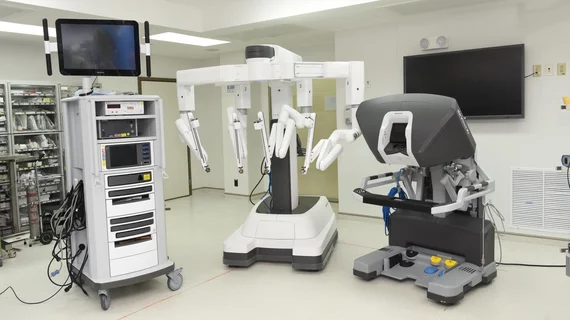Surgeons may have to start worrying about machines taking their jobs. A research hospital in Saudi Arabia has just achieved the world’s first fully robotic liver transplant—and the patient survived and is doing fine.
The recipient of this pioneering procedure was a 66-year-old Saudi male who has since recovered and been discharged, according to a statement from the hospital. The transplant was conducted by the King Faisal Specialist Hospital & Research Centre (KFSH&RC), which is becoming world famous for its robotic surgeons, who just last year successfully performed delicate brain surgery, albeit with the support of humans.
The patient in this case had been suffering from non-alcoholic liver cirrhosis and hepatocellular carcinoma, and would require a liver transplant to prolong his life. Robots were utilized to perform not only the transplant, but they also extracted the liver from the donor. After the success, KFSH&RC boasted in its statement that it is the sole institution to offer fully robotic liver transplant surgery.
“With this remarkable feat, we at KFSH&RC reaffirm our commitment to pushing the boundaries of medical innovation and enhancing the quality of healthcare services offered to patients worldwide,” Dieter Broering, MD, PhD, director of the team responsible for the surgery at KFSH&RC, said in the same statement. “The successful implementation of fully robotic liver transplants marks a pivotal moment in the history of organ transplantation and firmly positions KFSH&RC as a world-leading center in this field.”
Traditional liver transplantation, while often lifesaving, is a dangerous surgery that traditionally involves major incisions and carries a high risk of complications, resulting in prolonged hospital stays and increased patient discomfort. KFSH&RC says its robo-surgery is “minimally invasive,” reducing the risk of negative outcomes and improving patient recovery time.
More all-robot surgeries are coming, and possibly to a hospital near you. As a result of its successes, KFSH&RC has gained worldwide recognition and become a designated training center, the hospital says. Broering and his team work with medical institutions from everywhere to train surgeons in minimally invasive surgeries and transplant procedures, especially those that utilize advanced robotics.

.jpeg.webp?itok=RcwhREvF)